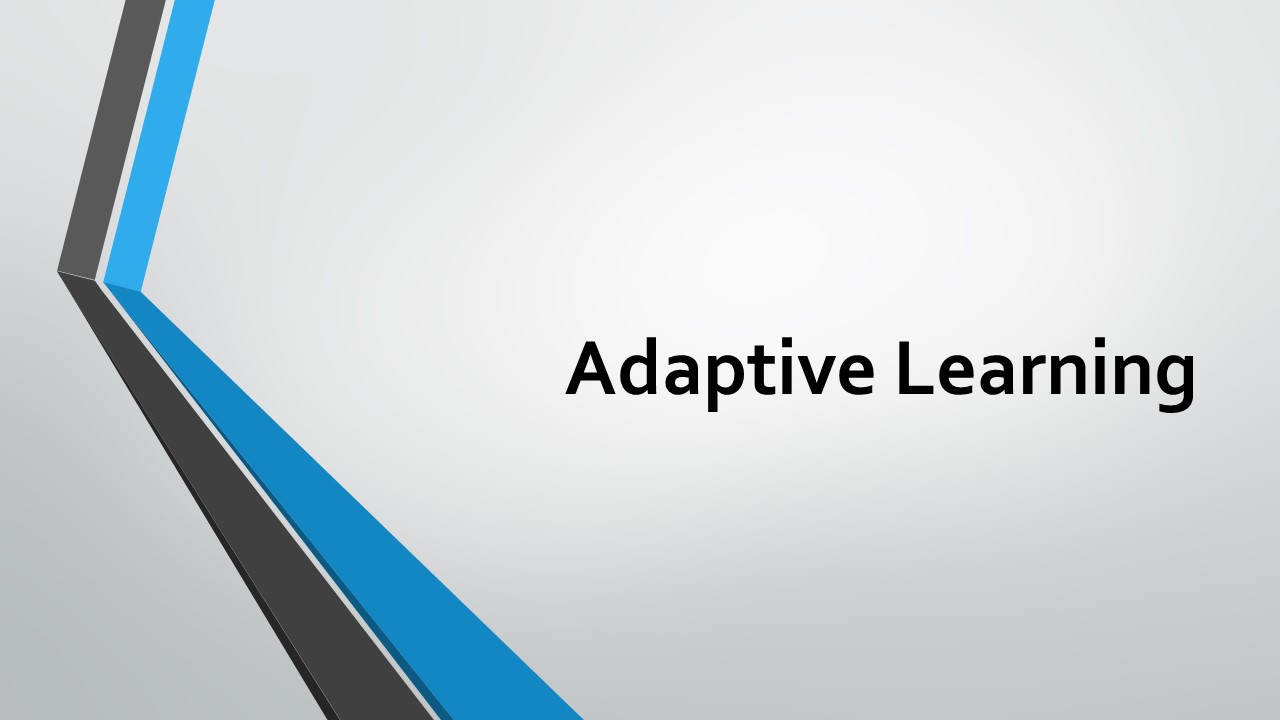Adaptive Learning - PowerPoint PPT Presentation
Title:
Adaptive Learning
Description:
Adaptive learning is another important aspect of eLearning, and Smart Sparrow is a top adaptive learning platform. It uses artificial intelligence and machine learning algorithms to personalize the learning experience for each individual learner. – PowerPoint PPT presentation
Number of Views:3
Title: Adaptive Learning
1
Adaptive Learning
2
What is Adaptive Learning?
- Adaptive learning is an approach to education
that uses technology to personalize the learning
experience for individual students. It is a
method of teaching and learning that adjusts to
the student's individual needs, abilities, and
learning styles. Adaptive learning uses data and
algorithms to identify the strengths and
weaknesses of each student, and then delivers
personalized learning materials and activities
that are tailored to the student's needs. - Adaptive learning systems typically use
artificial intelligence (AI) algorithms to
analyse data on student performance and
behaviour. This data is then used to identify
patterns, make predictions, and create
personalized learning paths for each student. For
example, an adaptive learning system might
identify that a student is struggling with a
particular concept, and then provide additional
practice materials or alternative explanations
until the student demonstrates mastery.
3
Benefits of adaptive learning-
- Personalized learning Adaptive learning can
provide personalized instruction to each student,
based on their individual needs, abilities, and
learning style. This helps to ensure that
students are learning at a pace that is
appropriate for them, and are receiving the
support and resources they need to succeed. - Increased engagement By providing interactive
and personalized learning experiences, adaptive
learning can help to increase student engagement
and motivation. This can lead to higher levels of
student participation, and ultimately, better
learning outcomes. - Improved retention Adaptive learning can help to
improve knowledge retention by providing students
with targeted, timely feedback and reinforcement.
This helps to reinforce key concepts and prevent
knowledge decay over time. - Flexibility Adaptive learning can be delivered
in a variety of formats, including online,
blended, or classroom-based instruction. This
flexibility allows educators to tailor the
learning experience to the needs of their
students and the constraints of their
environment. - Cost-effective Adaptive learning can be more
cost-effective than traditional classroom-based
instruction, as it can reduce the need for costly
textbooks and other materials, and can be
delivered at scale to large numbers of students.
4
How Does It Work?
- Courses that follow the adaptive learning model
are created on a web-based platform. All
information required for the course would be
found on the platform. There would be activities,
assessments, and materials required for all
learning tasks. After a student completes an
evaluation, the software would select the most
best learning experience software appropriate
level of tasks to work on. They would continue to
be guided towards the most relevant activity
based on their performance. Some students may
speed through the lessons easily while others may
need to review prior material. As the students
continue to engage with the platform, it becomes
more attuned to their needs, and can therefore
select materials that will help them achieve the
learning goals.
5
Which Courses Are A Good Fit For Adaptive
Learning?
- Not every discipline is the ideal candidate for
adaptive learning. Courses that contain a lot of
subjective learning activities, such as
literature papers, research projects or forums,
are not recommended for the adaptive learning
model. These tasks often centre on specific
opinions and would not capitalize on the
problem-solving aspect of the instructional
software. - Alternatively, classes that centre on objective
knowledge or a skill could greatly benefit from
the adaptive learning model. The technological
programs can quickly assess student knowledge and
grade the content. Using the answers given, the
software can also assess relationships and
connections given between the content itself.
Courses that have a large portion of automatic
grading are ideal candidates for this learning
model. They could then use a few subjective
activities, such as an essay or a research
project, to ensure that they utilize various
types of evaluations.
6
(No Transcript)































